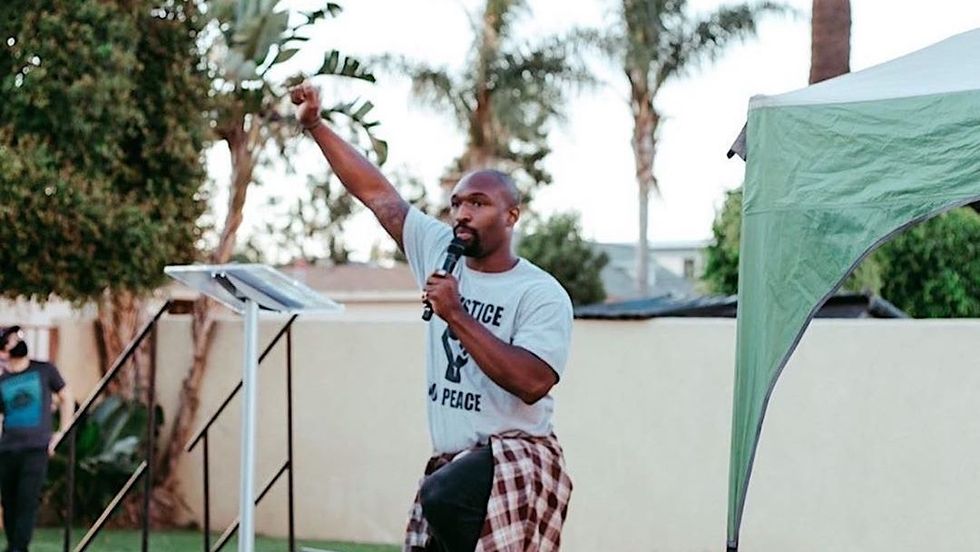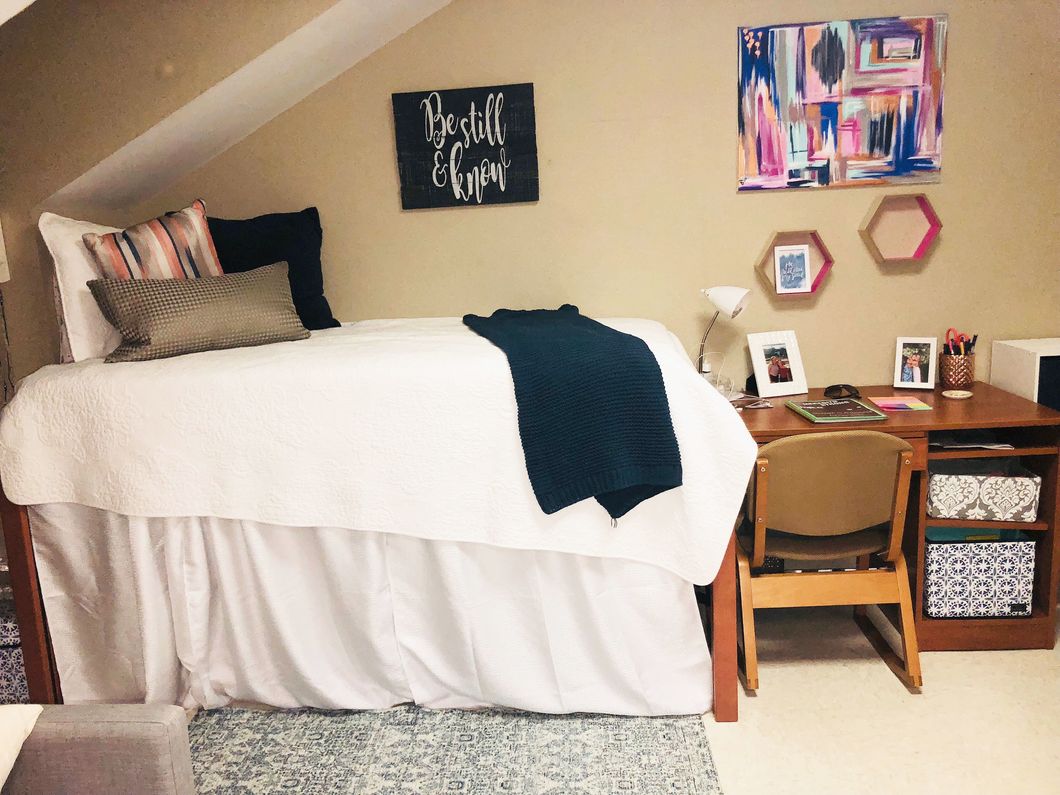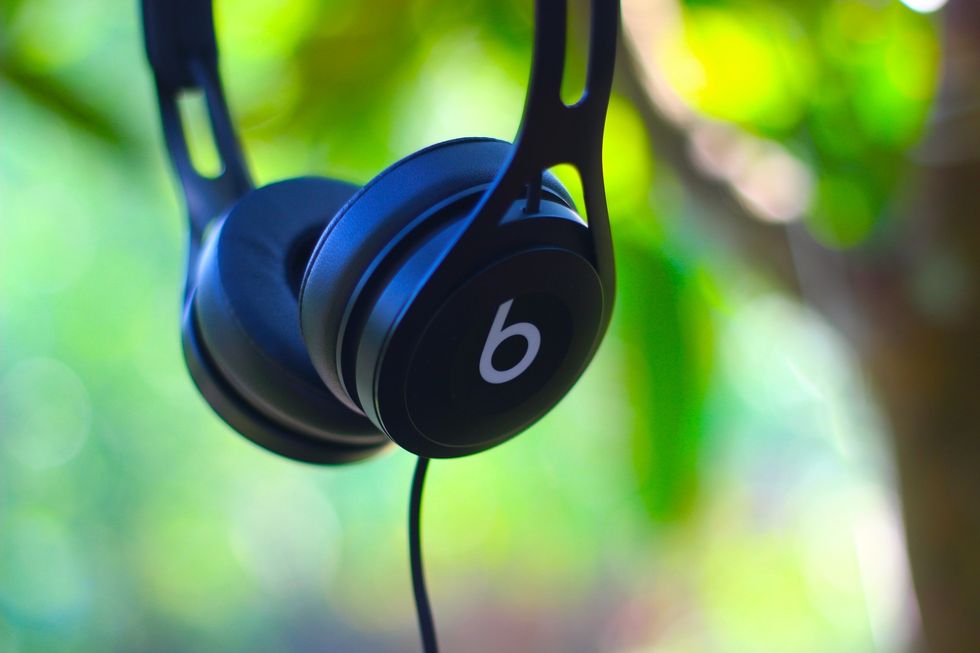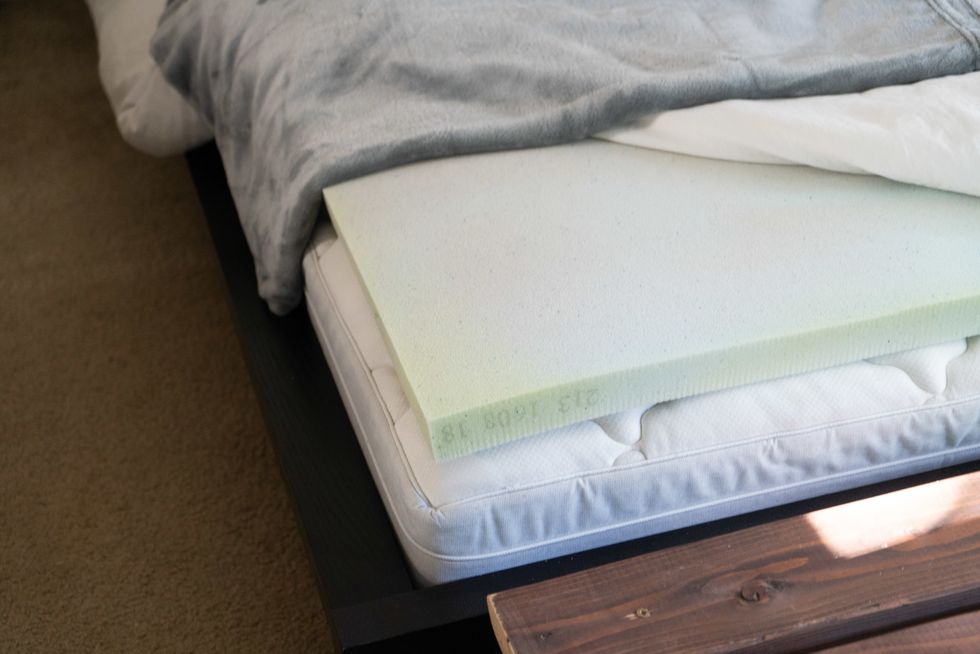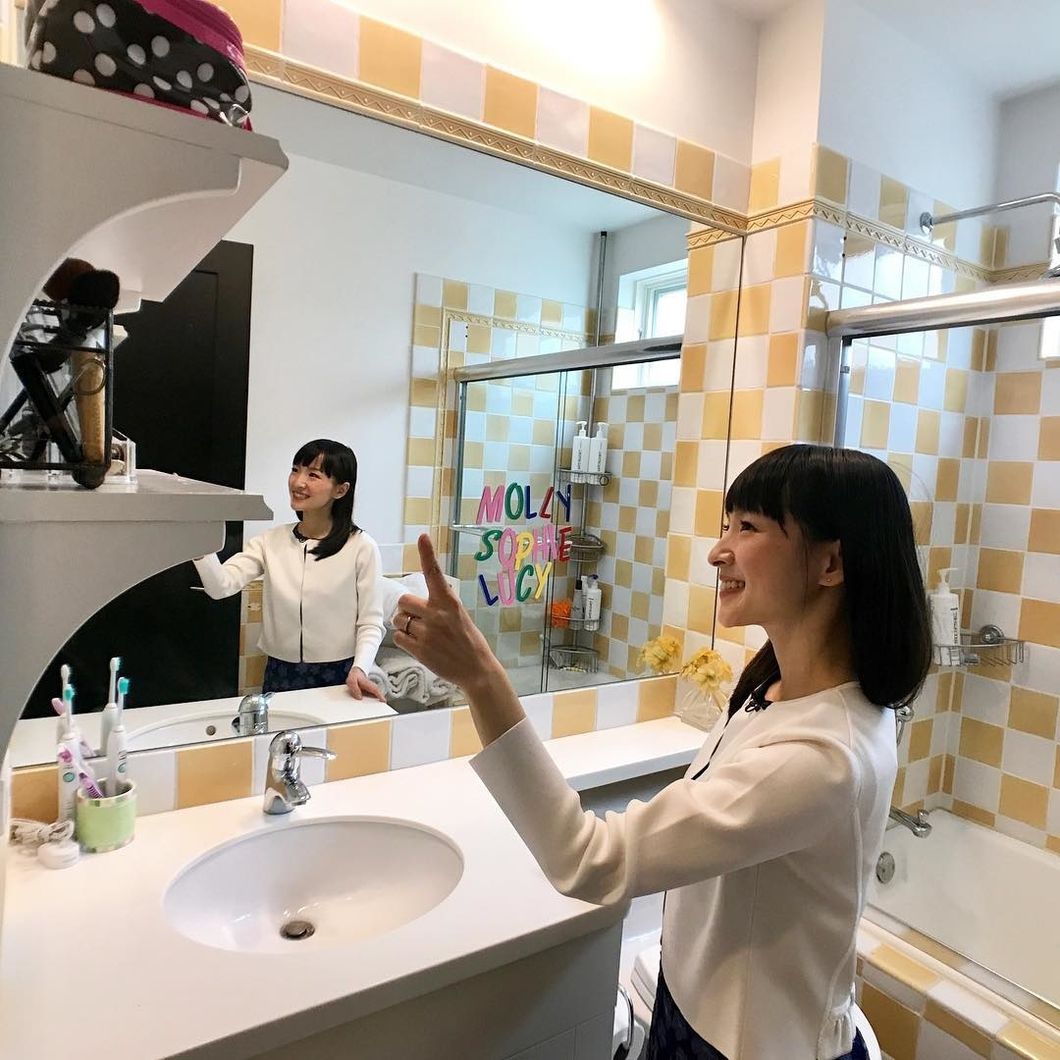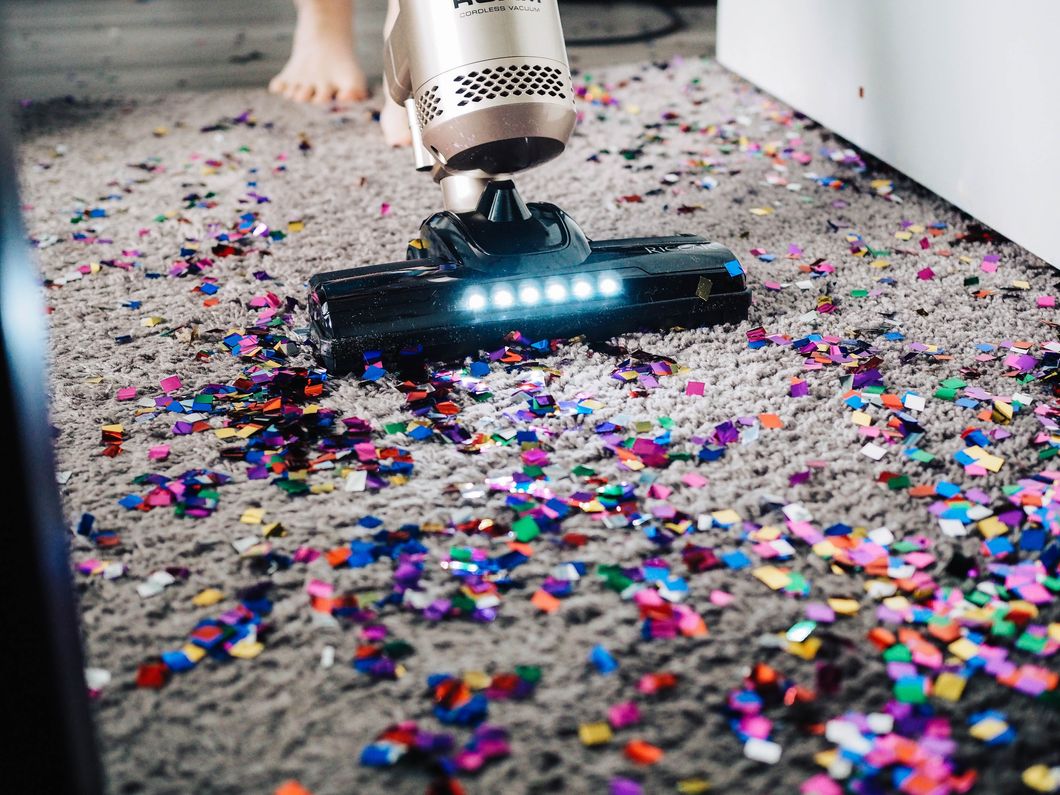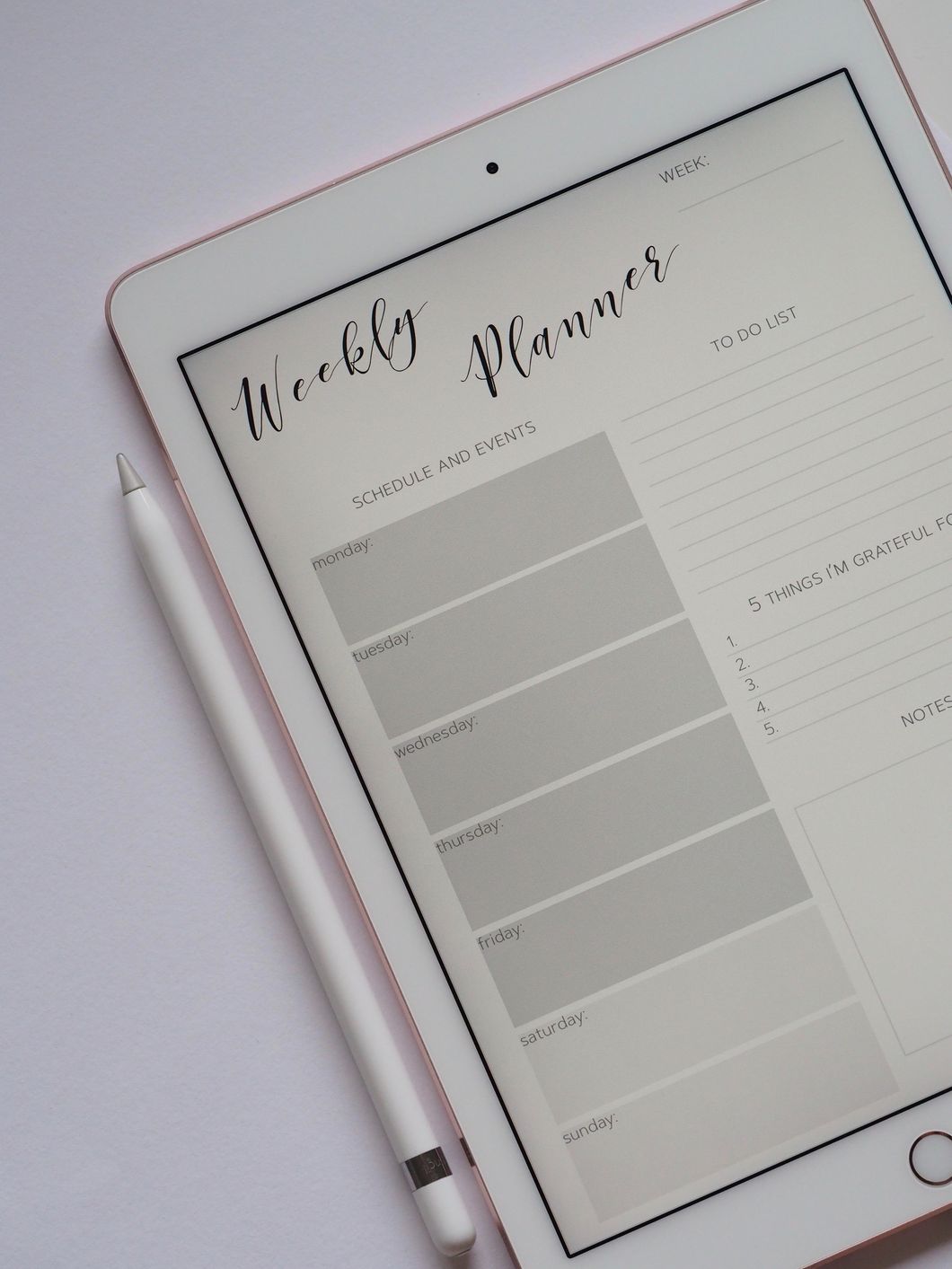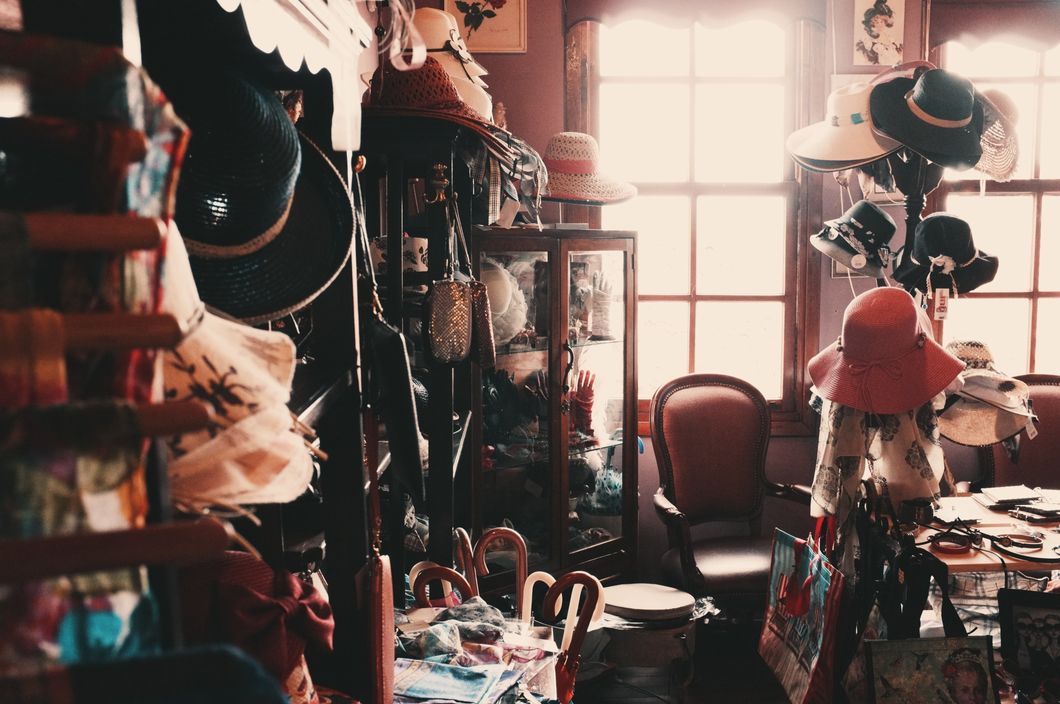We Talked To BLM Organizer Tyrone Nance On The LA Protests And Systemic Racism
"As long as the breath flows out of my body I will continue to fight and advocate for all those who are marginalized and oppressed."
As the Black Lives Matter movement continues to march across the country to protest the unjust deaths of George Floyd, Breonna Taylor, and others, many people are taking lead and using their voices to help spark systemic change.
These protests have sparked integral conversations across social media, in the national media, and have even started accelerating systemic change in many places. New York City is banning police restraints that choke people — even though the NYPD already have a ban in place.
San Francisco's Mayor, London Breed, has successfully pushed to stop police from responding to noncriminal calls. And in Los Angeles, Mayor Eric Garcetti is proposing a cut to police funding.
I spoke with Tyrone Nance, a friend and Black Lives Matter organizer in Los Angeles who is actively organizing peaceful protests and events on his thoughts around organizing protests, Black Lives Matter, police brutality, and police reform.
What is your background in social justice?
My background in social justice and activism began about 10 years ago.
I received my Master's in Transformational Urban Leadership and organized a lot of community events throughout the city of Los Angeles that have been centered around justice and equality. I was able to participate with international relief work in developing nations, have worked with several churches in the LA area with their community outreach and engagement efforts, and have also worked on Skid Row, advocating for those experiencing homelessness.
Most recently, I have been organizing and managing community efforts for victims of family violence and sexual abuse at a mental health center.
What does organizing look like to you?
Organizing is art, organizing is people, organizing is understanding the moment. Organizing to me is much more than X's and O's, although details are important. It is creating a space for others to come together and unite for a common goal.
Organizers have to be able to lead not just from the front but from the sides and the back. You have to be able to see the big picture but also be able to be present in the small moments.
I remember one protest I organized and led on Hollywood and Vine, it started with five of us and at least 100 National Guard soldiers parked on the street. Within a few hours it grew to thousands of people. As we were peacefully marching throughout Hollywood, someone brought to my attention a protester wearing a big sign on her backpack saying "We shoot back" and "Fuck 12" ("12" is a term used for the police).
I watched her for a couple streets before speaking with her and the energy radiated off her was intense and full of anger. At that moment I handed the microphone over to someone and left my position out front to go into the crowd and talk to her.
As soon as I approached her she turned to me with a smug grin and said "If you want me to take it off imma tell you 'No' like the rest of them. I'm ready for whatever to do!" I responded, "I feel you, Queen, I'm from South Central LA, I feel you! I've been shot before and I've been in handcuffs. I know what they doing to us! That's why we're out here marching together." She then turned to me again with tears in her eyes and said "For you, King, I'll take it off. Take it off for me."
As I took it off, I felt like I was taking so much more off. In a crowd of thousands, I saw her and heard her. Most people would have had tunnel vision and kept marching despite seeing someone hurting because it's all about the X's and O's. Sometimes I reflect on this moment and think that whole day was created just for her to share and release.
That's what organizing looks like to me.
Why did you decide to organize protests and rallies?
The transition from joining protests and rallies to organizing and leading them kind of happened organically and naturally. I have several moments that come to mind when I read this question but I'll share one that's special to me.
At the end of one protest, near the 101 freeway off the Hollywood exit where we parked our cars, my friends and I stood exhausted from marching and chanting for at least four or five hours. As we gathered to say goodbyes and final words, some of us continued to cheer the other protesters on with encouraging words from the street corner. Granted, we were totally done and ready to go.
Within minutes of being on the corner, a white ally handed me a microphone and said go for it. Which I think makes the moment even more special, a white person amplifying a Black person's voice.
With a mic in my hand I began to chant and encourage the passing protesters even louder. In the middle of saying George Floyd and Breonna Taylor's name, I told the crowd to drop to a knee in a moment of solidarity for eight minutes and 47 seconds. Suddenly everyone that was passing stopped and knelt in silence as we spoke about the incident play by play.
Once the time was up, we all embraced and tears flowed from everyone's eyes. I knew this moment would forever contribute to my "why." I saw unity, solidarity, and love in a way most could only dream of experiencing, and here I was helping create this moment.
What message(s) are you hoping to spread with your platform and with your work on the front lines?
I'm hoping to continue to spread love and unity. Together we stand stronger than ever against racial injustice. Our voices ring louder and more powerful united as one than they do divided. It's important that we continue to have transformative conversations around racism, microaggressions, and systematic oppression.
When I speak to crowds, I often tell them to look to their right and left because that's who you are fighting for, each other.
What are the most commonly heard arguments from critics?
'Where does the BLM funding go?' The mainstream media portrays BLM as a radical organization, when in reality they are protesting peacefully for basic human rights.
What are some things the media is getting wrong in their reporting?
The entire narrative. Viewing it from an entertainment standpoint and not a historical, revolutionary standpoint. For example, focusing on looting and not talking about America looting the lives of Black people for centuries. There's a double standard in the media.
What are the critiques you have of the media / the lack of representation in the media?
Focusing and showing the riots more than uplifting the peaceful protests.
How do you safely organize protests during a mass pandemic?
Wearing face masks, using hand sanitizers, using a lot of common sense sharing space with others and getting COVID-19 testing weekly.
What would be the first step toward police reform? And how do you feel about the current sentiment of "abolishing the police"?
The police department is the biggest legalized gang in the world. The very foundation of it was rounding up runaway slaves in the South. It oozes white supremacy. We need to abolish America's police departments. We can't reform a system that was never designed to protect and serve the Black communities in the first place.
To use language like "reform" insinuates some changes need to be made or some things need to be improved, when in fact it needs to be destroyed and rebuilt with the purpose of protecting and serving all people. We need to tear it down piece by piece and build a new civil authority. Abolishing sounds extreme but it's really not compared to the brutal and inhuman killings from law enforcement against the Black community for centuries.
The first step in police reform is defunding the police departments locally and nationally. Depleting the resources will allow money to be distributed to children's education, low-income housing, community revitalization efforts, healthcare resources and so much more.
What is your response to people who say "not all cops are bad"?
I agree they're not all bad, it's the system they work in that is bad.
What would you say to white people who don't 'believe' in systemic racism?
I would tell them to broaden their social circles of friends because clearly they don't have any authentic Black relationships in their lives. Systemic racism is so visible in our society it's virtually impossible to not see it. From Black people being racially profiled to literally being lynched in trees this year.
What has been your experience as a Black person in the protests? Do you feel more targeted by the police than white or non-Black protesters?
My experience has been liberating. I have felt nothing but love and adoration from the fellow protesters that surround me. When you protest as a Black person you quickly realize the presence of allies around you. Allies are willing to throw themselves in harm's way or get arrested to protect Black protesters. If our society adopts practices like this we will no longer see police officers killing Black people as bystanders stand by and watch with a video camera but actually interfering before that happens.
What is your response to police officers responsible for the deaths of people like Eric Garner, George Floyd, and Breonna Taylor?
It's disgusting and inhumane what those murderers did and keep doing to us.
We need to prosecute killer cops immediately every time police brutality takes place. Our judicial system needs to enforce harsher consequences on police officers that violate their oaths to protect and serve.
What do you think will ultimately end systemic racism?
First, creating a system that protects and reflects the people inside of it. That goes for law enforcement, policy changes and finance redistribution from overly funded areas of the government to more communal benefits. Almost every system created big or small has racial discrimination attached to it to some degree. We need to continue to tear those systems down and build up new ones.
Secondly, racism has to be removed from the fabric of our society, our culture, our minds, and our hearts. Unfortunately, those changes don't come from putting new laws in place, it happens over a period of time where each person takes accountability in educating themselves, continuing to have transformative conversations and stopping systemic racism within their own lives and social circles.
If we focus on changing one person around us the way we focus on changing the world we would see an end to systemic racism.
Talk about your experience as a POC in the marches and in the world.
It's by far the most empowering and liberating experience of my life. The love and unity inside of the marches is unmatched.
What is the end goal of your organizing?
It will never end, as long as the breath flows out of my body I will continue to fight and advocate for all those who are marginalized and oppressed.
How can other people help?
By educating themselves on racial injustice, policy reform and the true history of America's white supremacy.
In 5 years, what do you think the impact of this wave of BLM protests will be? And what do you hope it will be?
We're living in historic times right now. I think for the first time ever people are realizing the power in a collective uniting as one. We are seeing a movement of unprecedented proportions because allies old and young, Republican and Democrat, different races and beliefs, are coming together saying 'Black Lives Matter.'
I also see justice for my Latinx brothers and sisters on the rise too.
The time is over for America to benefit off the backs of marginalized people and call it 'capitalism.' The impact of this wave of protests will inevitably raise new leaders and new systems protecting Black lives.

